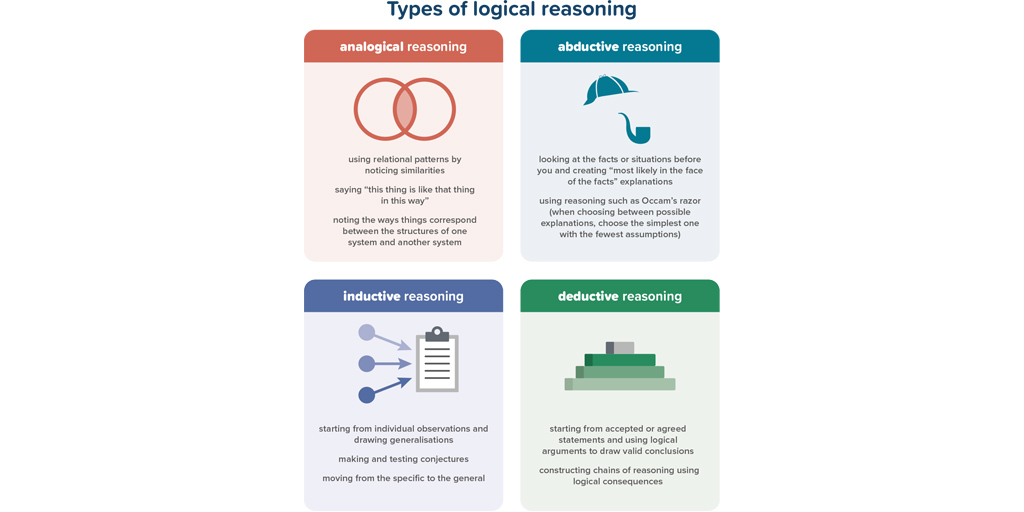30 November 2022

What does research suggest about the teaching and learning of early logical reasoning?
- Logic and logical reasoning are based on asking what is true and false and are central to many subjects including language, science, computer science and mathematics
- Logical reasoning is the basis for student understanding of concepts such as counting, equivalence and classifying
- Logical reasoning is making any argument using facts and connections, not just formal reasoning and proof; it can be analogical, abductive, inductive or deductive
- Understanding the difference between logic and belief and the way they interact supports students to develop logical reasoning
- Asking young students to complete idea generation tasks may help them to reason logically as it promotes creative and divergent thinking
- Exploring “all, none, some” type tasks and logic puzzles/games, as well as using both formal and visual representations, helps students to develop logical reasoning
- Giving students logical reasoning tasks with imaginary or nonsensical rules (false premises) helps them to develop abstract reasoning
- Possible tasks to support the development of early logical reasoning include “all x have y” types (implication), “knight and knave” puzzles, and exploring the use of “always” and “never” statements
View Espresso